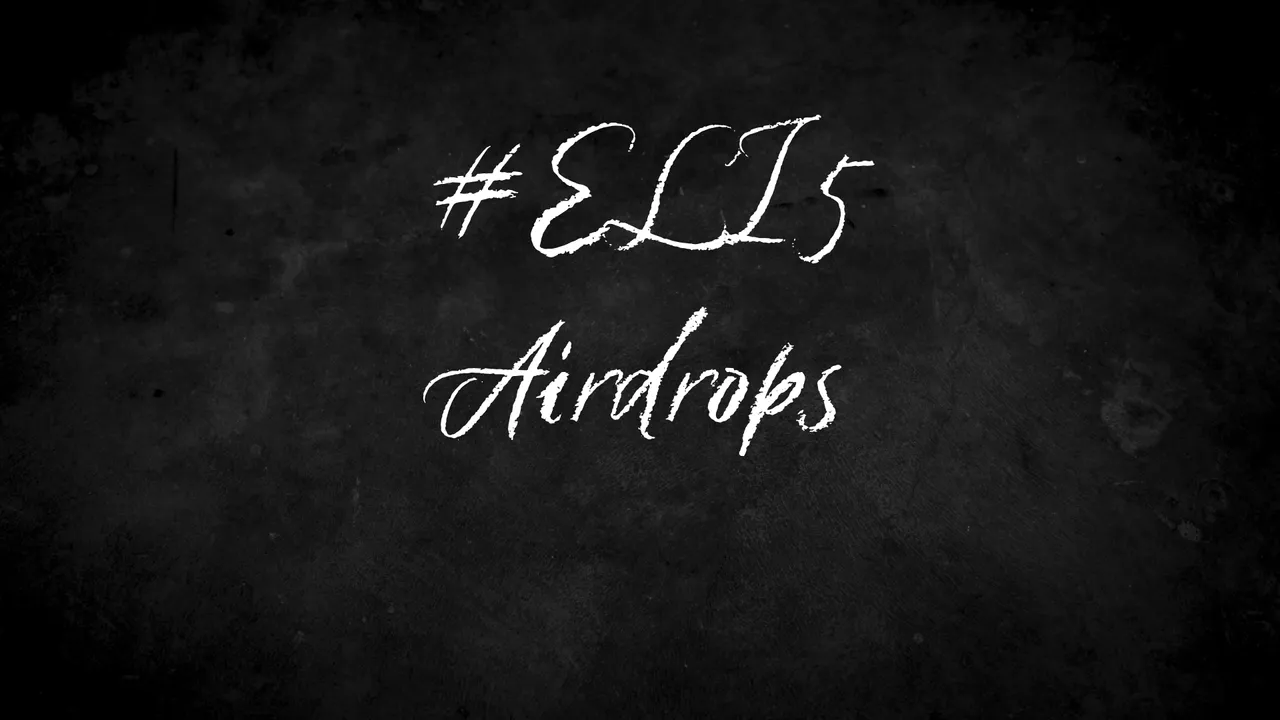In an attempt to contribute to the @leoglossary project I spoke to @taskmaster4450le and we both concluded that adding an #ELI5 post to the existing explanations in the glossary would be a good idea. If someone has issues understanding a term even after reading the glossary info they can read the ELI5 version to get a full understanding of the subject.
Before we start I do want to say that anyone can contribute to this "side project". Just be sure to add your article to the #ELI5 category.

Now... Let us get back to the point.
What are airdrops and why would anyone give free money away?
To answer these questions accurately we need to go back to the very beginning and understand why blockchains came to be in the first place. The whole idea behind this technology is to enable decentralized governance which in turn enables protocol users to govern the protocol rather than giving that responsibility to one person or entity.
If that sounds too complicated let's break it down even more.
If you ever received an airdrop it was either due to a chain fork or a retroactive reward for using a decentralized application, WEB 3 game, or something along those lines. Projects know how to get creative and sometimes they will reward users from competitor projects just to get their attention and maybe even incentivize them to use their DApp instead.
A great example of retroactive airdrops is certainly Uniswap. When the $UNI token got released Uniswap decided to reward every wallet that interacted with the protocol before the token launch. The general idea behind this is simple - if you want decentralized governance you need to distribute your token to as many people as possible while also not giving them away to those that don't deserve it. With more people that are able to vote on proposals, the voting process is decentralized and democratized as much as possible considering all of the circumstances.
Fork airdrops happen when a community gets divided or decides to split the chain in two for whatever reason. Hive forking from Steemit is a great example for this category. The community didn't like the path Steemit embarked on so they created a completely new chain with a completely new token but gave everyone a fair chance to migrate by airdropping Hive at a 1:1 ratio to Steem holders at the time of the fork. This way those that want to migrate can jump ship and continue where they left off.
Think of this whole situation as a company where the CEO had a mad idea to burn all of the inventory and sell the company for pennies. While it is not possible in the physical world, blockchains enable you to copy all of the work that was done so far in the company and continue where you left off before the CEO got his crazy idea while he still gets to ruin his company.
Chain fork airdrops always sound like free money but in reality, the new token needs to establish market value to actually have any monetary value itself. We can fork Hive all day long but if no one wants to invest in the new token it will be worth zero no matter how many of it we are holding.
It does look and sound like printing money but there are a lot of moving parts that need to fit just right before airdropped tokens can have any actual value.
Let's imagine a protocol that feels it is the right time to retroactively reward its users with governance tokens. As far as the protocol is concerned these tokens are only used for voting and their utility will be determined by the community and token holders in the future.
This project drops 100 tokens to 100 users where everyone gets 1 token each. In terms of voting your new token will grant you voting rights immediately but if you want to sell that token to someone you will need to find a buyer or someone will need to set up a liquidity pool where you can exchange it for a different token.
If the market shows no interest in your token and no one wants to buy it from you it is worth exactly $0 but it still gives you a right to vote on proposals. This is where the community comes in. They need to figure out a way to improve the protocol and give the token enough utility so that outside interest is generated.
For example, if you propose a staking mechanism where staking your tokens will grant you a share of the protocol's revenue every once in a while and the vote passes, then we have some utility and I may consider purchasing it from you if the value it brings makes sense to me and the price is right.